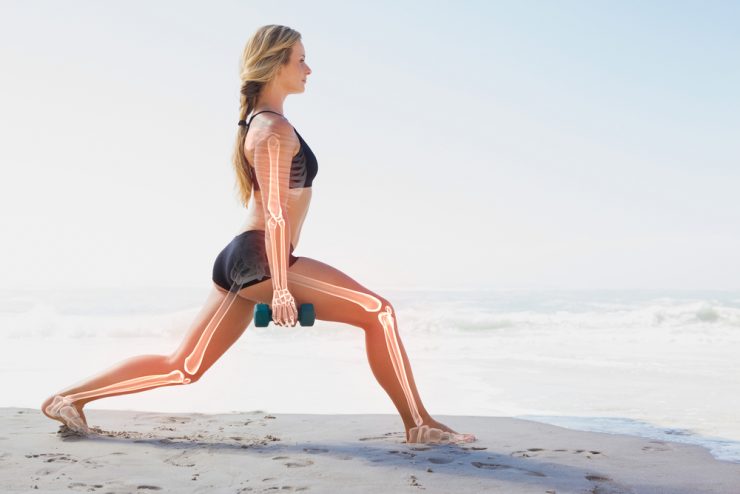Osteoporosis otherwise known as brittle bone disease affects around three million of us in the UK and there is no sign of this reducing in the short term. However, as with anything, prevention is better than cure and bone health is so important especially as we age.
Clinical Nutritionist Suzie Sawyer looks at five best ways to look after your bones.
Balance your dairy intake
We naturally associate healthy bones with dairy foods because they are rich in calcium, the most abundant mineral in bones and teeth. And this is true. Dairy produce is also high in protein, which is essential for hormone production, building and repairing the body, and immune function.
However, all protein foods contain acid as part of their chemical makeup. When the body becomes too acidic, as part of its normal protection mechanisms, it ‘buffers’ the acidity by releasing alkalising calcium from the bones. For some, dairy can promote inflammation throughout the body. This may encourage skin and joint problems as well as mucous production. So it really is a question of balance.
While it’s important to include some dairy foods in your diet for the health benefits they provide, also look out for dairy-alternatives, which are calcium-enriched, particularly milk and yoghurts.
Go green
Green leafy vegetables (and many plant-based foods) are rich sources of bone-loving magnesium. Optimal calcium to magnesium ratio is about 2:1 as magnesium also plays a key role in bone health, being the fourth most abundant mineral in the body.
Other plant-based foods high in magnesium are avocados, bananas, asparagus, nuts, seeds and legumes, so there’s plenty of choice. The more green foods you can include in your diet, the better your bones will be!
Get more of the ‘sunshine’ vitamin D
Vitamin D is as important for bone health as magnesium. Affectionately known as the sunshine vitamin, this is because it’s primarily made on the skin in sunlight. The great news is that summer is on its way so hopefully we can all enjoy some rays. The body only needs about 15 minutes per day of sun exposure (without sun cream) to boost vitamin D production.
However, busy lives and long working hours in air-conditioned offices often mean we don’t always get a lot of exposure to the sun. While Public Health England recommends a Vitamin D supplement for everyone during the winter months, it’s certainly advisable to take it all year- round. Food sources such as oily fish, margarine and dairy do supply some vitamin D, but the body requires much higher levels so a supplement is a good idea.
Move and groove
One of the best ways of protecting against osteoporosis is to take regular impact exercise that combines weight-bearing moves with muscle strengthening. Great examples include brisk walking, jogging, weight training, yoga, dancing, playing team sports, skipping and stair climbing. Try to do some exercise every day even if you only manage a 20-minute walk around the block.
Exercise also needs to be sustainable so do what you love and you’re more likely to do it!
Be acid aware
Just as eating too much dairy produce can create acidity within the body, other factors can have the same effect. Unfortunately, coffee should only be drunk in moderation, certainly not more than one cup per day, for this reason.
Other acid-promoting foods include sugar, fizzy sweetened drinks, processed foods and fresh and processed meats. Try to follow the Mediterranean way of eating which includes plenty of fresh fruits and vegetables, oily fish, nuts, seeds and plant-based foods with alcohol in moderation. This will ensure your body does not become too acidic and your bones are protected.
























Add comment